
Whether you have bugs, bats, or rodents invading your home, you’ll want to contact an exterminator quickly. Find out how much pest control costs in Columbus, OH.
Get the upper hand on hide-and-seek with fleas


Wondering where fleas hide in your home? Fleas like hiding in tight crevices where they can safely feed and reproduce, so they are frequently found in pet bedding, upholstery, furniture, and carpeting.
Aside from the irritating bites, fleas can carry disease to humans and be especially irritating for pets. Dogs, cats, and other animals can experience restlessness, scratching, and other ailments from flea bites. Read on for five places to search for fleas in your home.
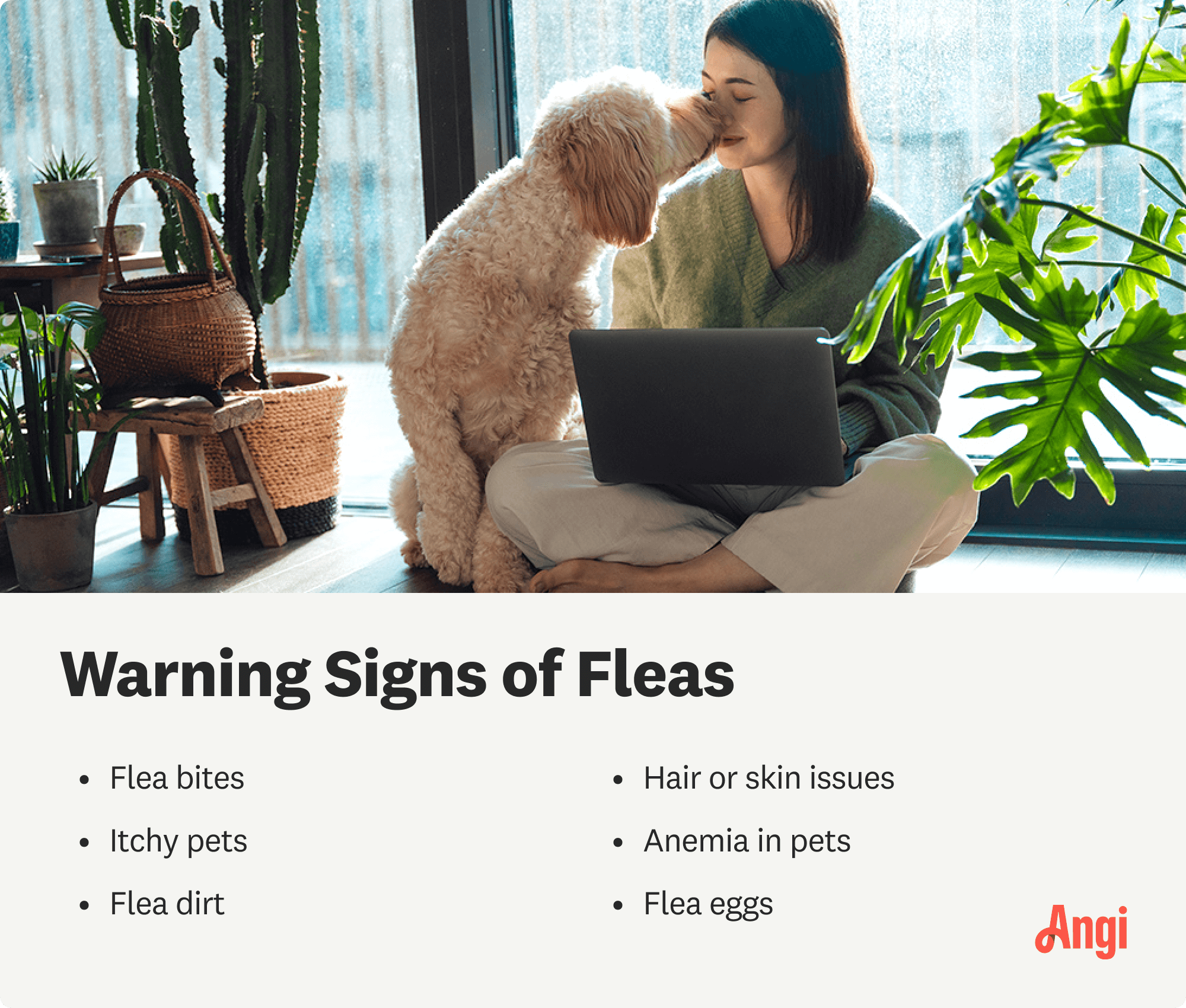
The most common entry point for fleas in your home or in the yard is through your pets. Dogs, cats, and other household animals can carry fleas into your home. If you think you may have fleas indoors or out, check your pet for signs of fleas.
On dogs, fleas tend to dwell on their tails. Fleas prefer to hide in thick areas and the hair on a dog's tail usually provides this sanctuary. For cats, the opposite is true, as fleas will typically stay away from the tail end of cats. Instead, fleas often prefer the area around a cat's head and neck. That's why flea collars are a popular way to get rid of cat fleas.
If your flea problem doesn't resolve itself after implementing DIY removal methods, it's time to call in a professional exterminator. Don't hesitate to take pest control action to prevent the infestation from growing.
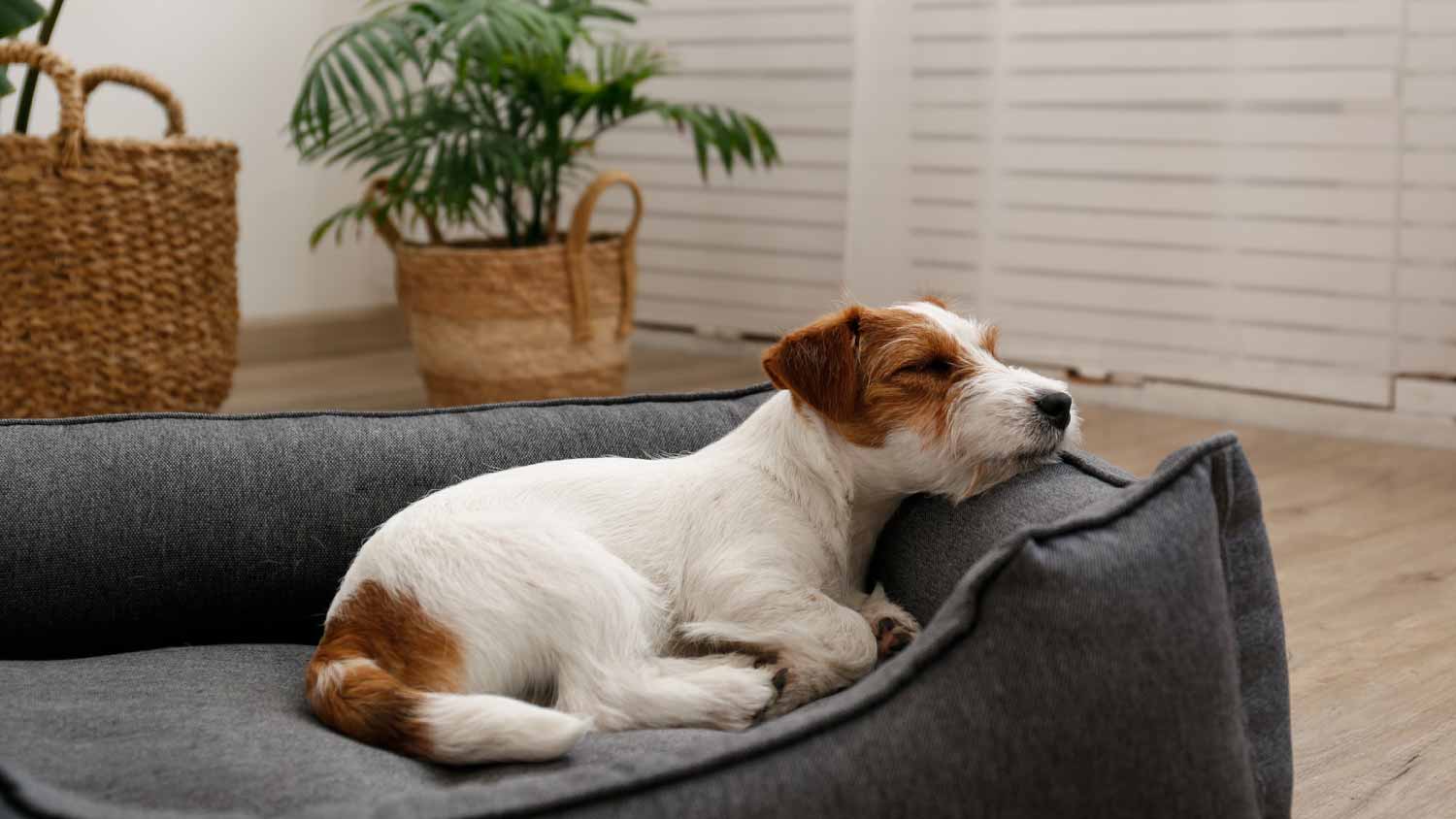
Once inside your home, fleas will search for an ideal location to hide. Pet bedding is often a magnet for flea activity, such as laying eggs and larvae. If any of your pets sleep in the bed with you, fleas will make a home in your bedding as well.
Other areas around the home fleas are attracted to include sofa cushions, upholstery, and other soft furnishings throughout your home. Once fleas hunker down in these areas, they can stay there for weeks on end, enjoying the warmth the area provides. Keeping your home clean by washing bedding in warm water and routinely vacuuming the sofa can help eliminate fleas in your house. If fleas remain in your home after taking these measures, don’t hesitate to hire a local flea control specialist for help.
Another soft spot fleas enjoy making a home is in carpets and rugs. If your pet loves laying down on the soft flooring for a nap or to play with their favorite toy, it's likely a flea will jump ship and get cozy. Carpets and rugs tend to be filled with debris and fleas will feed on that.
While vacuuming can help get rid of fleas in carpets and rugs, it's a more difficult task to remove any larvae left behind. Larvae feature a sticky substance that dry vacuums can't always extract. A water-based vacuum cleaning system may be a better option to ensure all traces of fleas are removed.
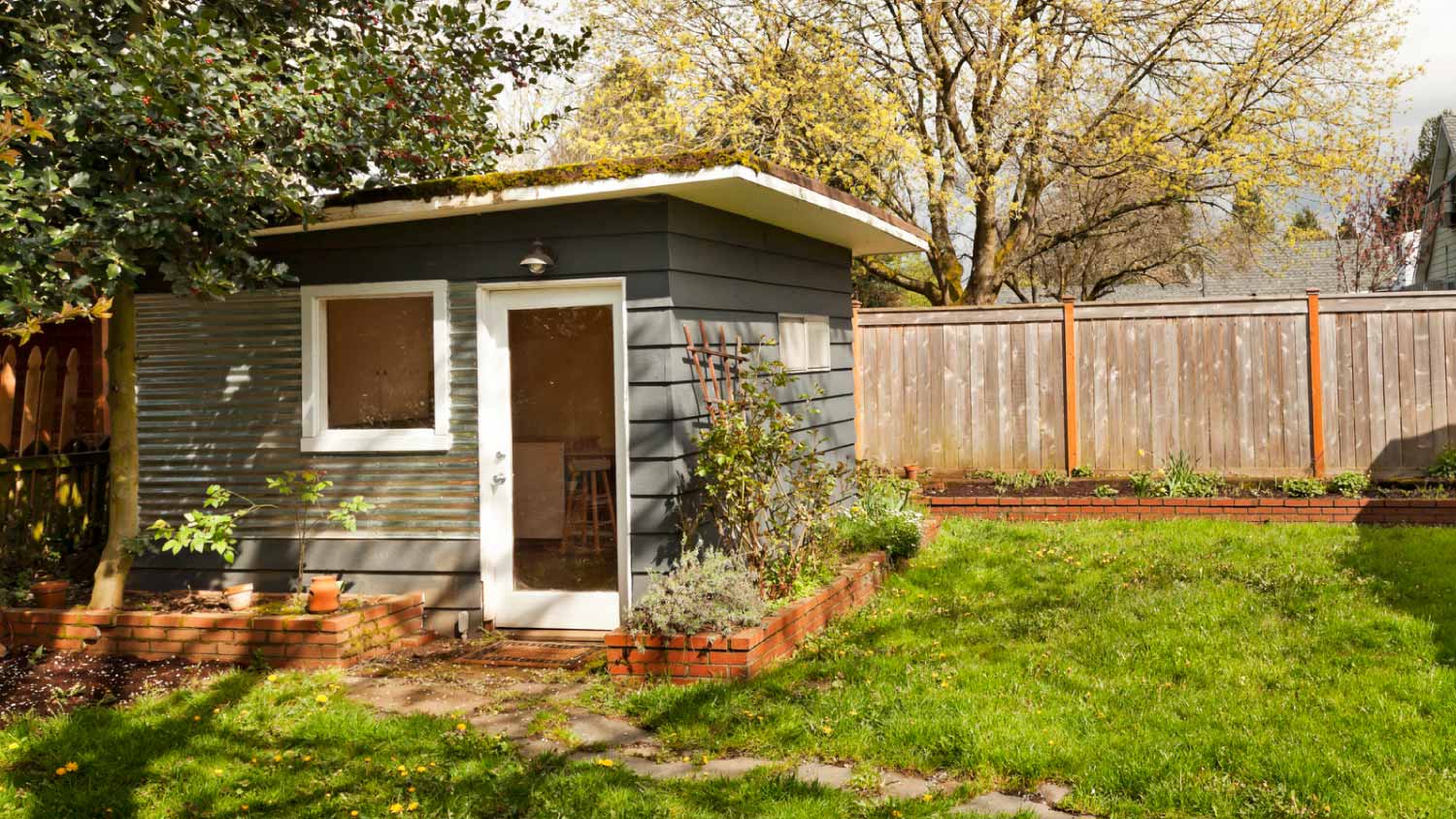
While pets can track fleas inside your home and in your yard, other animals are responsible for outdoor fleas as well. Wildlife such as coyotes, deer, foxes, opossums, raccoons, rodents, skunks, and stray cats will bring these insects into your yard.
Small or medium-sized wildlife will tend to search for crawl spaces when navigating across your property to find warmth and while they're there, fleas may make a home as well. Any crawl spaces near a garage, under a deck, around trash cans, or other crevices in the yard could harbor wild fleas.
If you're having trouble determining which bugs are biting in your yard, it may very well be fleas. As wildlife meanders through your yard, fleas can make homes in most areas of vegetation. From trees to bushes to tall grass, fleas will hide in shady areas to stay out of the sun.
Maintaining a clean landscape outdoors is one of the best ways to combat fleas in your yard. Keeping the grass and bushes trimmed up means fleas don't have a location to stay out of the sun and they'll end up moving on or dying.
You don’t have to deal with fleas if they never make it inside your home. But if you have playful pets, that can prove challenging. Here are our best tips for keeping fleas outside of your home:
Vacuum regularly: Keep fleas from hiding and reproducing in carpet or pet beds. Vacuum these areas regularly during flea seasons, especially if you have a pet.
Clean your pet’s soft objects: Wash your pet bedding and blankets thoroughly every week or two in hot water if they frequently play outside.
Set a flea trap near doors and pet beds: Flea traps aren’t perfect, but they can do a lot of good when combined with other efforts. Look for dedicated flea traps, which often use lights to attract fleas when it gets dark.
Use flea medication on pets: If you have multiple pets and use flea medication, make sure they aren’t licking it off of each other or rolling in the dirt to get rid of it. Don’t wash your pets while the flea medication is settling.
Consider steam cleaning: Steam wands and steam vacuums can kill fleas in carpets and furniture quite effectively before they spread.
When fleas are out, keep pets in: One of the most effective ways of preventing indoor flea problems is to keep your pet indoors. That’s even more important during the warmer months when fleas are active, or if you’ve noticed flea problems around the dog park or similar areas.
Hire a pest control pro: If fleas are a continuous problem, it’s time to hire a flea exterminator. These experts will be able to offer ideas about possible pesticide barriers and other options to deal with fleas.
Even if you know how to get rid of fleas effectively, you may still face ongoing challenges. There are some natural ways to kill fleas on your own, but it’s not a guarantee they’ll fix the problem. A flea infestation requires more than a few at-home remedies to remove them. Your best bet to rid your home of these pesky insects is to hire a local flea exterminator. The average flea exterminator cost ranges between $75 to $400 per treatment.
According to data from Angi customers, 64.4% of people hire pest control services within one week of noticing an infestation. Another 7% of people hire within one to two weeks. Since fleas reproduce quickly, you should call a pro ASAP instead of waiting.
While Naaman and Mike were very professional and amicable to work with, there were issues in this project that makes giving a higher rating impossible. We had several communications issues that delayed completion. The roofers accessed the property without communicating with me. Just showed up...
They called 15 minutes before arrival to announce that they were coming and arrived on time. Immediately they saw the broken springs and replaced them very quickly. Jeff suggest that I put on a rope to the manual switch to operate it more easily if necessary. I explained that my old door...
We had the solar paneling installed over the summer and the folks from Ecohouse they had a very competitive bid. They were able to make recommendations on the siding, whether it would be a good idea to get solar. They did an excellent job with the installation. They also helped us arrange...
The owner Dwight is one of the nicest people you will ever meet and he truly cares about his customers. We have been using Champion Pest Control for about 4 years now, he comes out ever 3 months on schedule to spray the house. We called him originally on a Saturday because we had carpenter...
They were very good. They got rid of all of the pests and continually put down bait boxes and also sprayed for various bugs as well.
The exterminating company sends a knowledgeable person over to the building if the tenants have seen some bugs or pests and they take care of it. They are very good. They are very responsive. They do quality work and their price isn't bad. They come at the time they say they will. The...
From average costs to expert advice, get all the answers you need to get your job done.

Whether you have bugs, bats, or rodents invading your home, you’ll want to contact an exterminator quickly. Find out how much pest control costs in Columbus, OH.
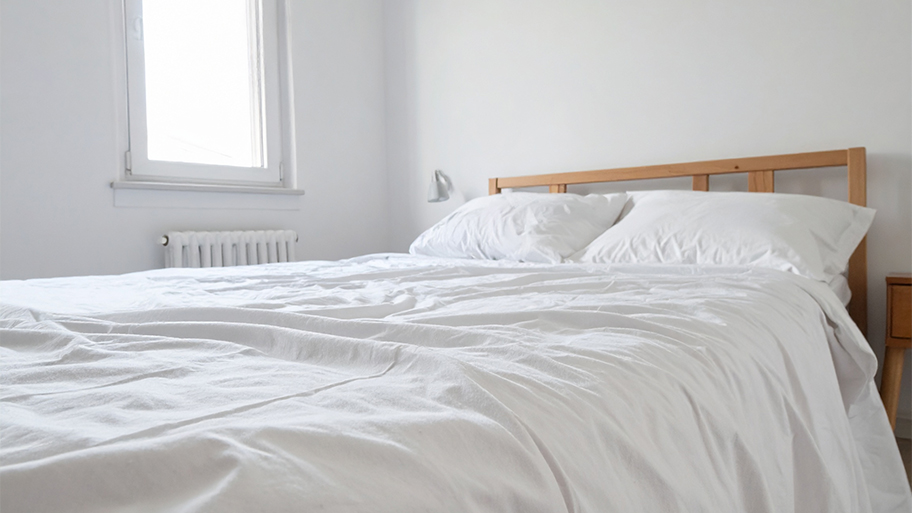
It’s important to know bed bug treatment costs if you have an infestation. Our guide covers different treatment methods and cost factors to eliminate these pests.

Discover the average ant exterminator cost, factors impacting pricing, and how to save. Get expert tips to budget for ant removal and protect your home.

Wondering how to kill stink bugs—and keep them away, for good? Read on for a DIY guide on how to get rid of stink bugs.
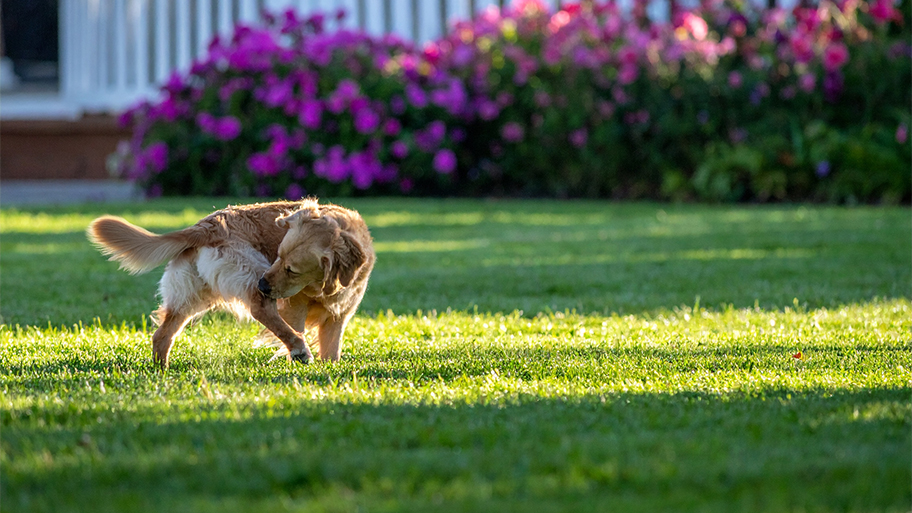
Fleas and ticks are irritating and can cause health issues, especially for pets. Create a homemade flea and tick killer for your yard to keep your home safe.

While ground bees play an important role in our environment, severe infestations can cause issues. Learn how you can get rid of ground bees with this guide.